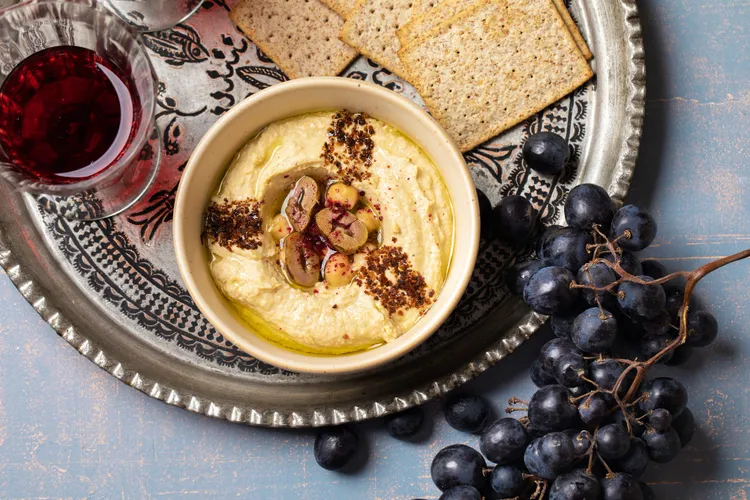Health Is a Daily Practice, Not Just a Diet: A Holistic Guide to Lifelong Wellness
When we think of “health,” the first thing that often comes to mind is diet. Low-carb, keto, vegan, paleo—the list of trending diets is endless, each promising a quick path to a better body or a longer life. But here’s the truth: health is so much more than what you eat. While nutrition is a critical piece of the puzzle, true wellness is a daily practice that weaves together movement, mindfulness, sleep, relationships, and purpose. It’s about small, intentional choices that add up to a vibrant, balanced life.

We’ll explore why health is a daily practice, not just a diet, and share practical strategies to cultivate lifelong wellness. From morning routines to stress management, we’ll cover how to build habits that nourish your body, mind, and soul. Whether you’re just starting your health journey or looking to deepen your practice, this guide will inspire you to embrace health as a way of living, not a temporary fix. Let’s get started!
Why Health Is More Than a Diet
Diets are often marketed as the ultimate solution to health problems, but they’re inherently limited. Most focus solely on food, ignoring other pillars of wellness like physical activity, mental health, and rest. Worse, many diets are restrictive, unsustainable, and rooted in a mindset of deprivation, leading to burnout or yo-yo cycles of weight loss and gain.
A 2018 study in The Lancet found that while dietary patterns (like the Mediterranean diet) are linked to better health outcomes, their benefits are amplified when combined with other lifestyle factors like regular exercise and adequate sleep. Health is multidimensional, and neglecting any one area - whether it’s stress, movement, or social connection - can undermine your efforts, no matter how “perfect” your diet is.
Think of health as a garden. Your diet is the soil, providing essential nutrients, but without sunlight (exercise), water (sleep), and care (mental well-being), your garden won’t thrive. By embracing health as a daily practice, you create a sustainable framework for wellness that feels empowering, not punishing. Let’s explore how to build this practice through 10 key principles and actionable strategies.
10 Principles for Making Health a Daily Practice
- Start Your Day with Intention
Why It Matters: How you begin your morning sets the tone for the rest of your day. A mindful start helps you prioritize health and make conscious choices.
How to Practice It:
- Create a simple morning routine (5–15 minutes) that includes hydration, movement, or mindfulness. For example, drink a glass of water, do a quick stretch, or journal three things you’re grateful for.
- Avoid jumping straight to your phone or email, which can spike stress levels.
- Try a “1-1-1” rule: 1 minute of deep breathing, 1 minute of movement (e.g., jumping jacks), and 1 minute of positive affirmations.
Keep your routine flexible to avoid overwhelm. Even a 2-minute practice is better than none.
A 2019 study in Frontiers in Psychology found that morning mindfulness practices improve focus and reduce stress throughout the day.
- Move Your Body Daily
Why It Matters: Physical activity is a cornerstone of health, boosting mood, energy, and longevity. A 2020 study in The British Journal of Sports Medicine found that just 150 minutes of moderate exercise per week can reduce the risk of heart disease by up to 30%.
How to Practice It:
- Find movement you enjoy, whether it’s walking, dancing, yoga, or weightlifting. Aim for at least 20–30 minutes daily.
- Incorporate “movement snacks” throughout the day, like a 5-minute stretch break or walking during phone calls.
- Track your steps with a fitness tracker or phone app to stay motivated (aim for 7,000–10,000 steps daily).
Pair exercise with something you love, like listening to a podcast or music, to make it a habit you look forward to.
Take a 15-minute walk after lunch to boost digestion and mood, then try a 10-minute yoga flow in the evening.
- Nourish with Whole Foods, Not Just “Diets”
Why It Matters: Nutrition fuels your body, but restrictive diets can lead to nutrient deficiencies or disordered eating. A 2017 meta-analysis in Nutrients showed that whole-food-based diets (rich in fruits, vegetables, lean proteins, and whole grains) support long-term health better than fad diets.
How to Practice It:
- Follow the 80/20 rule: eat nutrient-dense, whole foods 80% of the time and enjoy treats 20% of the time.
- Use the “plate method”: fill half your plate with vegetables, one-quarter with lean protein, and one-quarter with whole grains or starchy veggies.
- Experiment with colorful, seasonal produce to keep meals exciting (e.g., roasted beets in fall or fresh berries in summer).
Prep one veggie-heavy meal per week (like a big salad or stir-fry) to batch-cook for easy lunches.
Try a quinoa bowl with roasted sweet potatoes, kale, chickpeas, and tahini dressing for a balanced, satisfying meal.
- Prioritize Sleep
Why It Matters: Sleep is when your body repairs, recharges, and regulates hormones. A 2021 study in Sleep linked poor sleep (less than 7 hours per night) to higher risks of obesity, diabetes, and depression.
How to Practice It:
- Aim for 7–9 hours of quality sleep nightly.
- Create a wind-down routine: dim lights, avoid screens 30–60 minutes before bed, and try reading or meditation.
- Keep a consistent sleep schedule, even on weekends, to regulate your circadian rhythm.
Sip herbal tea (like chamomile) or use a white noise machine to enhance relaxation.
Set a bedtime alarm to remind you to start your wind-down routine at 9:30 PM for a 10:30 PM bedtime.
- Manage Stress Mindfully
Why It Matters: Chronic stress raises cortisol levels, which can lead to weight gain, inflammation, and weakened immunity. A 2018 study in Psychoneuroendocrinology found that mindfulness practices reduce stress-related health risks.
How to Practice It:
- Practice daily mindfulness, like 5 minutes of deep breathing, meditation, or journaling.
- Try progressive muscle relaxation or a guided meditation app (e.g., Headspace or Calm).
- Schedule “micro-breaks” during the day to reset (e.g., a 2-minute walk or closing your eyes to breathe).
Keep a stress-relief toolkit handy, like a stress ball, essential oils, or a playlist of calming music.
Do a 5-minute body scan meditation before lunch to release tension and refocus.
- Stay Hydrated
Why It Matters: Water is essential for digestion, energy, and skin health. Even mild dehydration can cause fatigue and cravings, per a 2016 study in The Journal of Nutrition.
How to Practice It:
- Aim for 8–10 cups of water daily (more if you’re active or in a hot climate).
- Carry a reusable water bottle and set reminders to sip throughout the day.
- Infuse water with lemon, cucumber, or mint for flavor to make hydration more enjoyable.
Eat water-rich foods like watermelon, cucumbers, and oranges to boost hydration.
Start your day with a glass of warm lemon water and keep a 32-oz water bottle at your desk to refill twice daily.
- Build Strong Relationships
Why It Matters: Social connections are vital for mental and physical health. A 2015 meta-analysis in Perspectives on Psychological Science found that strong relationships are linked to a 50% lower risk of premature death.
How to Practice It:
- Schedule regular check-ins with friends or family, like a weekly coffee date or phone call.
- Join a community group, like a book club, fitness class, or volunteer organization, to meet new people.
- Practice active listening and gratitude in your relationships to deepen bonds.
Send a quick text or voice note to a loved one each day to stay connected.
Plan a Sunday brunch with friends or call a family member during your evening walk.
- Cultivate a Growth Mindset
Why It Matters: A positive, flexible mindset helps you stay resilient and committed to your health goals. A 2019 study in Nature Human Behaviour found that a growth mindset improves adherence to healthy behaviors.
How to Practice It:
- Reframe setbacks as learning opportunities (e.g., “I missed a workout, but I’ll try again tomorrow”).
- Set small, achievable goals to build confidence (e.g., “I’ll eat one extra serving of veggies today”).
- Celebrate progress, no matter how small, to stay motivated.
Keep a journal to track your wins and reflect on how far you’ve come.
Write down one health goal each week (e.g., “Walk 20 minutes daily”) and review your progress on Sunday.
- Limit Toxins and Harmful Habits
Why It Matters: Reducing exposure to toxins and unhealthy habits (like smoking or excessive alcohol) supports your body’s natural detoxification processes. A 2020 study in Environmental Health Perspectives linked lower toxin exposure to better health outcomes.
How to Practice It:
- Choose whole, minimally processed foods over packaged items high in additives or sugar.
- Limit alcohol to 1–2 drinks per week and quit smoking with support from apps or counseling.
- Use natural cleaning products and filter your drinking water to reduce environmental toxins.
Swap one processed snack (e.g., chips) for a whole-food alternative (e.g., carrot sticks with hummus) each week.
Replace soda with sparkling water infused with fruit for a refreshing, toxin-free drink.
- Find Purpose and Joy
Why It Matters: A sense of purpose and joy fuels motivation and resilience. A 2017 study in The Lancet Psychiatry found that people with a strong sense of purpose have lower rates of depression and chronic disease.
How to Practice It:
- Engage in activities that light you up, like painting, gardening, or volunteering.
- Reflect on your values and how your daily choices align with them.
- Practice gratitude daily to cultivate joy, like listing three things you’re thankful for before bed.
Try a “joy audit”: list activities that make you happy and schedule one per week.
Spend 10 minutes gardening each evening or volunteer at a local animal shelter on weekends.
A Sample Day of Holistic Health Practices
To bring these principles to life, here’s a sample day incorporating all 10 practices:
- 7:00 AM: Wake up, drink warm lemon water, and do a 5-minute stretch and gratitude journal (intention, hydration).
- 7:30 AM: Eat a breakfast of oatmeal with berries, chia seeds, and almond butter (nutrition).
- 8:00 AM: Walk 15 minutes to work or do a quick yoga flow (movement).
- 12:00 PM: Take a 5-minute deep-breathing break before lunch (stress management).
- 1:00 PM: Enjoy a veggie-packed quinoa bowl for lunch and sip water (nutrition, hydration).
- 3:00 PM: Text a friend to plan a weekend hike (relationships).
- 6:00 PM: Cook dinner (grilled salmon, roasted veggies) and reflect on a small win from the day (nutrition, mindset).
- 8:00 PM: Unplug, read a book, and sip chamomile tea (sleep, toxin reduction).
- 9:00 PM: Journal three things you’re grateful for and do a 5-minute meditation (joy, stress management).
- 10:00 PM: Lights out for 8 hours of restful sleep (sleep).
Why a Holistic Approach Works
Health is interconnected, and science backs the power of a daily practice. A 2019 study in The American Journal of Lifestyle Medicine found that combining multiple healthy behaviors (diet, exercise, sleep, stress management) leads to better outcomes than focusing on one alone. For example:
- Exercise and nutrition together improve insulin sensitivity more than diet alone (Diabetes Care, 2018).
- Sleep and stress management reduce inflammation better than medication in some cases (Journal of Clinical Sleep Medicine, 2020).
- Social connections and purpose enhance mental health, reducing the need for antidepressants (JAMA Psychiatry, 2016).
By treating health as a daily practice, you create a synergy that amplifies benefits across physical, mental, and emotional well-being.
Tips for Building Your Daily Health Practice
- Start Small: Pick 1–2 practices (e.g., morning hydration and a 10-minute walk) and build from there.
- Be Consistent: Aim for daily habits, even if they’re short (e.g., 5 minutes of meditation).
- Track Progress: Use a habit tracker app or journal to stay accountable.
- Stay Flexible: Adapt your practice to your schedule and energy levels.
- Seek Support: Share your goals with a friend, coach, or online community for encouragement.
Health is not a destination you reach with a crash diet or a 30-day challenge. It’s a daily practice - a series of small, intentional choices that shape how you feel today and who you become tomorrow. By weaving together movement, nutrition, sleep, mindfulness, relationships, and purpose, you create a life that’s not just longer but richer, more vibrant, and deeply fulfilling.
So, start today. Drink that glass of water, take that walk, call that friend, or simply pause to breathe. Health is yours to practice, one beautiful day at a time.









